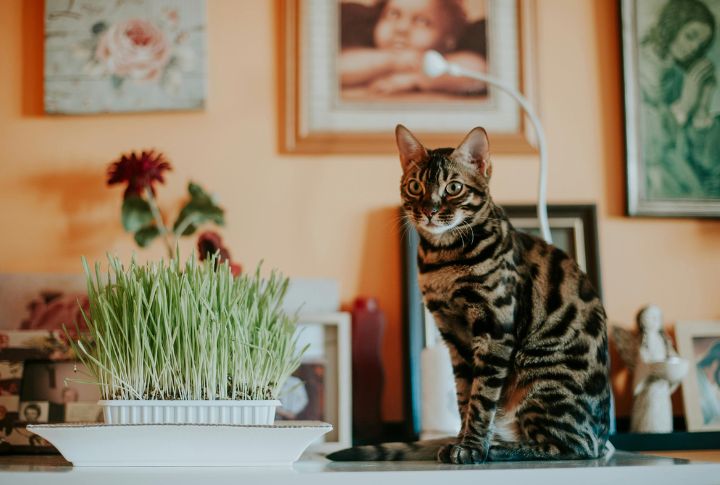
No matter how many cat books you’ve read or how deep your TikTok algorithm has pulled you into CatTok, nothing quite prepares you for what it’s actually like to live with an indoor cat. They’re part roommate, part toddler, part shadowy cryptid. Plus, they don’t come with instructions. Here’s what people should really be warning you about.
They Remember Negative Experiences
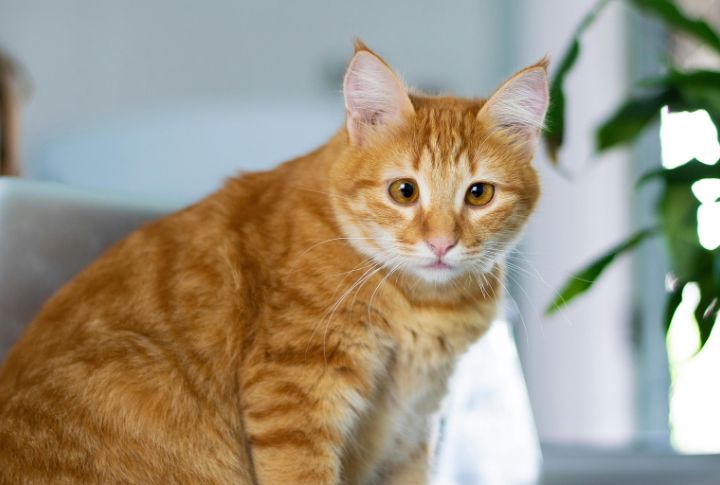
Step on their tail or accidentally shut a door in their face, and your cat might seem to brush it off—but don’t be fooled. Weeks later, they may still hesitate around you or that particular door. It’s not about holding a grudge; it’s simply their instinct to avoid potential harm and protect themselves.
They Learn Your Schedule Better Than You Know It

Cats might not care what time it is, but they know when you’re due to leave, shower, or start cooking (even if you haven’t decided yet). They pick up on micro-patterns: The way your tone shifts when you’re running late, the sound of a particular shoe. You can’t fake them out. They know you’re bluffing.
Their Meows Are Scripted For You And You Alone
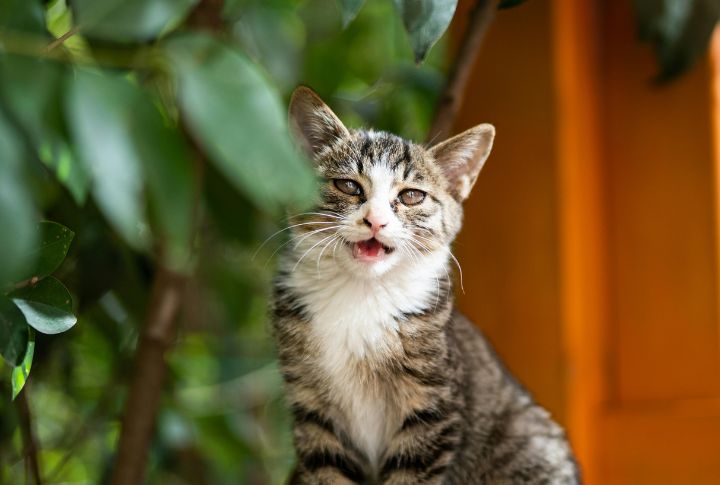
Adult indoor cats don’t meow at each other—only at humans. That entire vocal range? It’s designed just for you. They’ve mastered different meows to get what they want: the pitiful one for food, the annoyed one when the litter box needs cleaning, and, of course, the infamous 3 a.m. banshee wail. Consider this your training.
Bathroom Time Becomes Shared Time
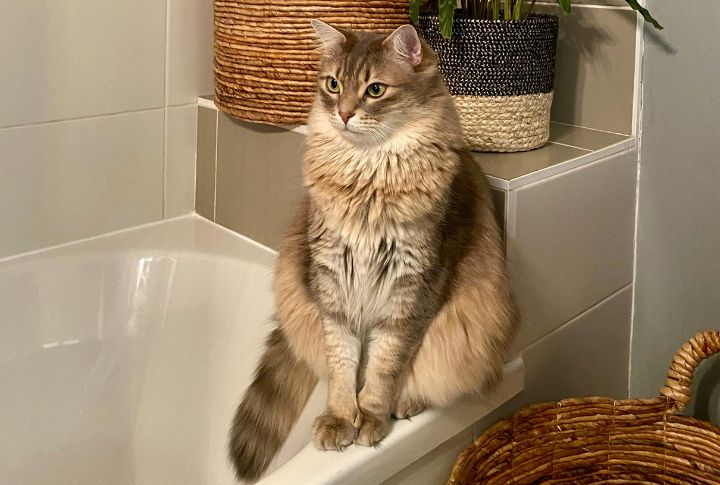
Indoor cats treat the bathroom like an exclusive club they’re unfairly being kept out of. A closed door feels like a crime. Eventually, most owners give in. Some cats press their faces against cabinets as if inspecting the grout, while others insist on supervising every routine. It’s not just curiosity—it’s a mix of habit, routine, and the need to stay close.
They Develop Niche Obsessions With Random Household Items
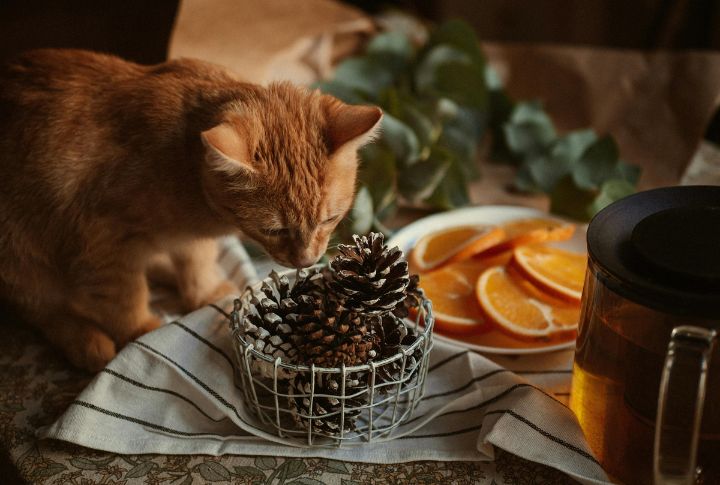
Forget the toy aisle. Your cat wants the corner of a specific cereal box, a frayed drawstring, or one singular sock from 2017. These attachments may seem random, but they provide comfort, familiarity, or just the perfect texture for play. If you throw it out, expect a protest. If you move it, they’ll find it.
They Absolutely Know Their Name (They Just Don’t Care)
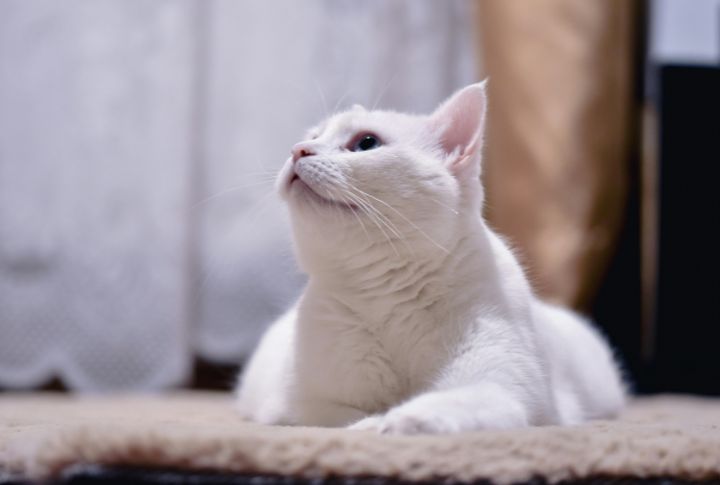
People say cats don’t respond to names. Not true. They respond selectively. If your cat doesn’t come when called, it’s because they’ve run a cost-benefit analysis and decided “no.” But say their name while opening a treat bag or shaking a feather toy, and suddenly, you’re the most compelling person in the building.
They Chirp At Birds Like They’re Trying To Place An Order
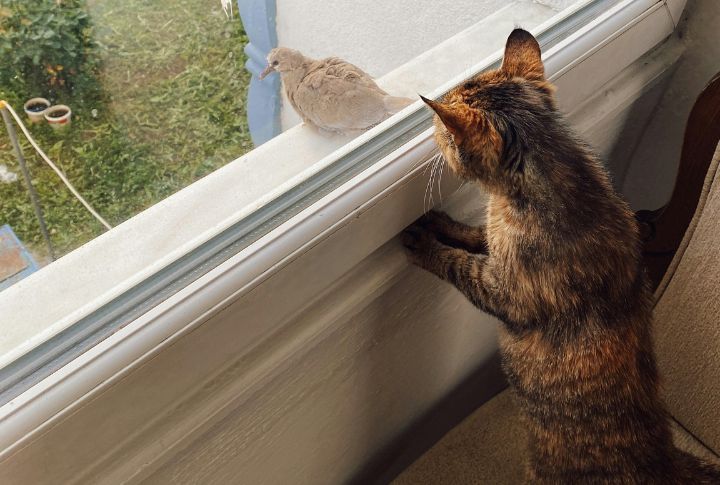
A strange, breathy chatter will often come from the window ledge. It’s not quite a purr or a meow, but something in between, almost like Morse code for hunting. Usually, it means they’ve locked eyes on a bird they’ll never catch. Some believe it’s mimicry; others say it’s frustration. Either way, it’s the sound of a hunter held back.
Still Water Is For Peasants
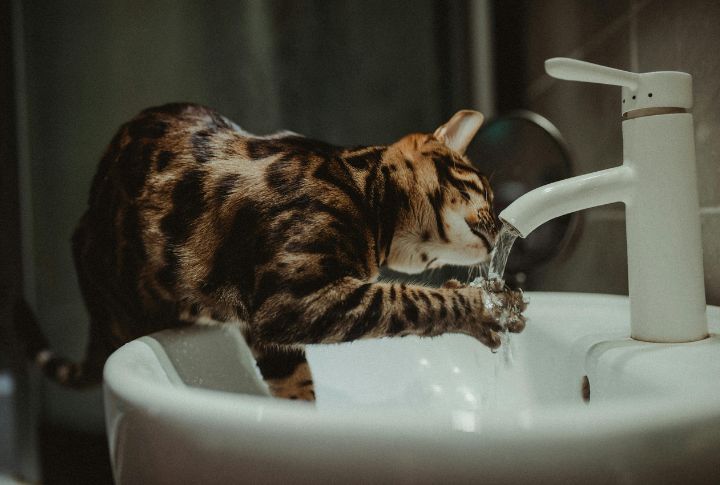
You’ll buy a cute ceramic bowl. They’ll drink from your glass. Cats prefer running water instinctively. Why? It’s cleaner, fresher, and, in their minds, superior. If you don’t install a fountain, expect them to beg for sink drips or loiter by the shower like a cryptid. It’s not picky behavior. It’s deeply personal hydration politics.
They Can Develop Phantom Prey Syndrome
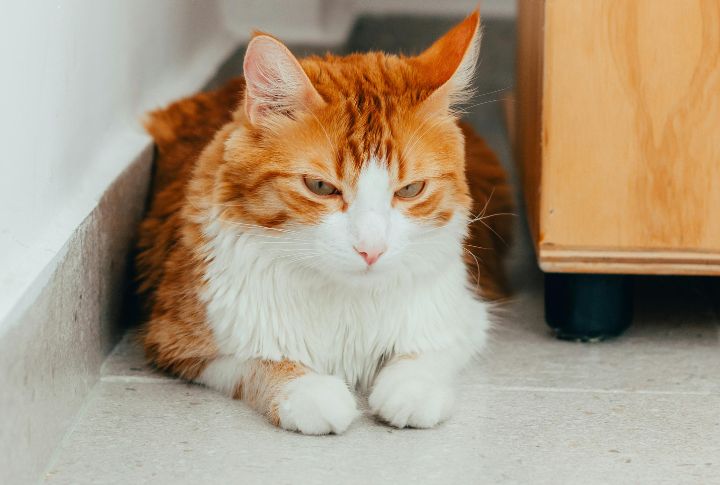
Indoor cats don’t always have an outlet for their predator drive. So, sometimes, they manufacture one. Out of boredom or habit, they’ll hunt imaginary bugs across the hallway, chase shadows, or attack the same rug corner nightly. It’s normal. Creepy, yes. But normal. Don’t interfere unless they look distressed.
They Can Get Addicted To Being Overstimulated
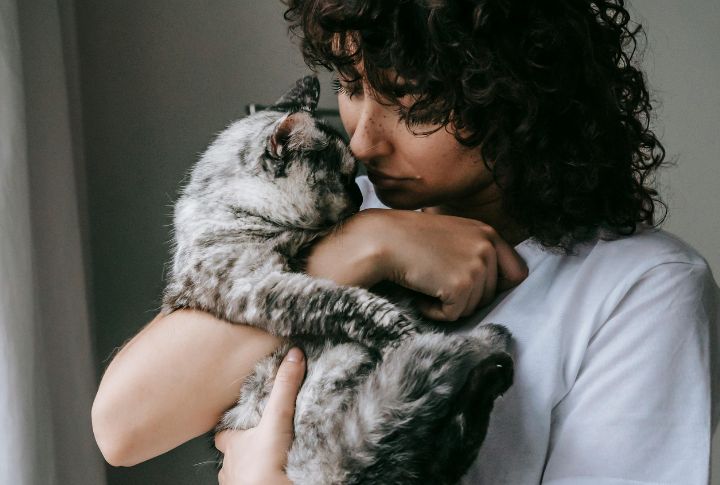
Petting feels good until it doesn’t. A cat who goes from purring to biting your arm isn’t confused. They’re self-regulating. Indoor cats sometimes blur that line because they live in a constant loop of comfort and boredom. It’s not personal. Just learn their body language and stop before the tail starts twitching.
Play Aggression Is Real, And It’s Not Cute At 2 A.M.
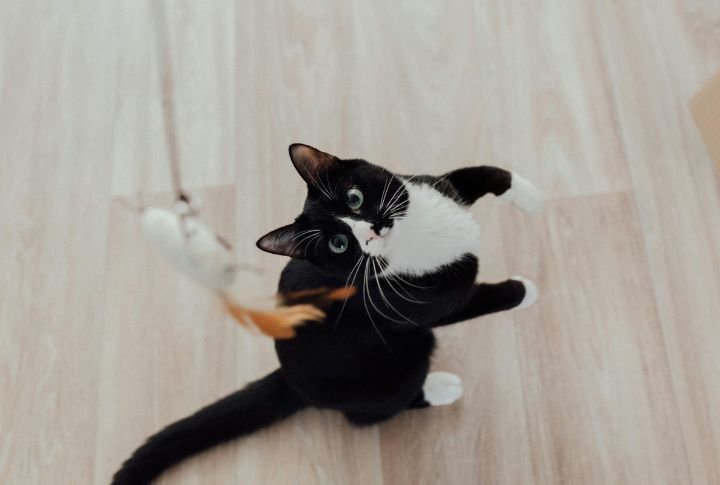
Toys will be bought, and “enrichment” activities will be done. Yet, at some ungodly hour, your cat will ambush your ankle as if it owes them money. Indoor cats store energy like small, furry power grids. If you don’t help them release it on their terms, they’ll choose violence. Don’t take it personally, but do invest in wand toys.
Overgrooming Isn’t Always About Vanity
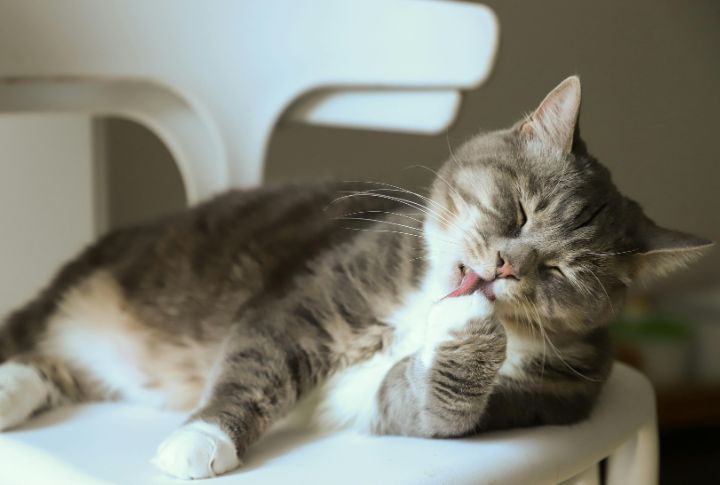
When a cat obsessively licks, especially to the point of bald patches, it’s rarely about hygiene. More often, it’s a sign of stress. Unlike outdoor cats, indoor cats can’t “walk it off,” so they turn to grooming for comfort, as it releases endorphins. But if they’re overdoing it, it could indicate anxiety, pain, or simple cabin fever. Call the vet.
They Will Absolutely Become Door Dashers
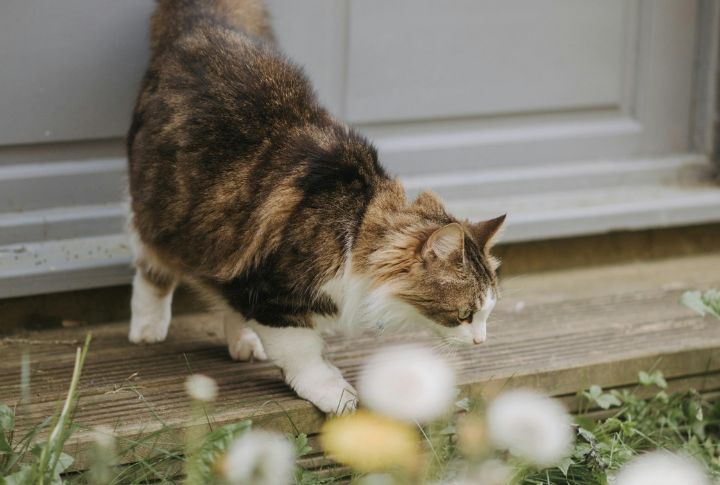
You think your cat’s a homebody until you crack the door, and it bolts like a greyhound. For some indoor cats, the threshold is sacred and must not be crossed. Not because they wanted to escape but because you told them they couldn’t. Training helps, distraction works better, and baby gates? They are surprisingly effective.
They Stalk You For No Reason At All
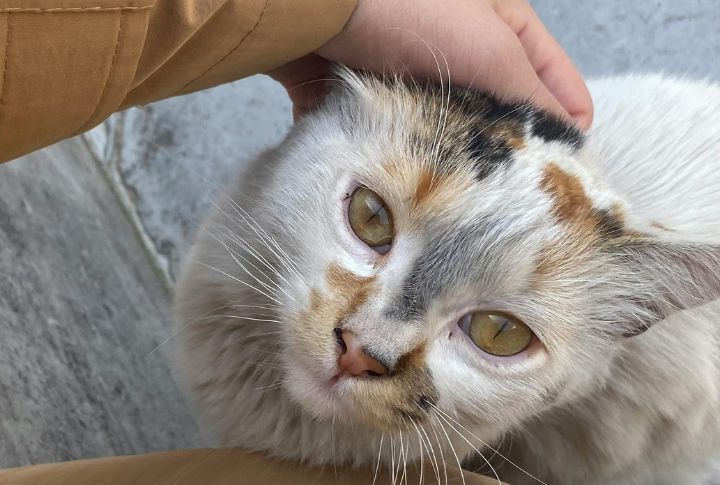
That eerie sensation of being watched isn’t your imagination—it’s your cat, silently trailing you from room to room like a tiny detective. They don’t always want food or play. Sometimes, they just want to observe. You’re the show. But don’t flatter yourself; this is data collection.
They Sleep More Than Seems Biologically Possible
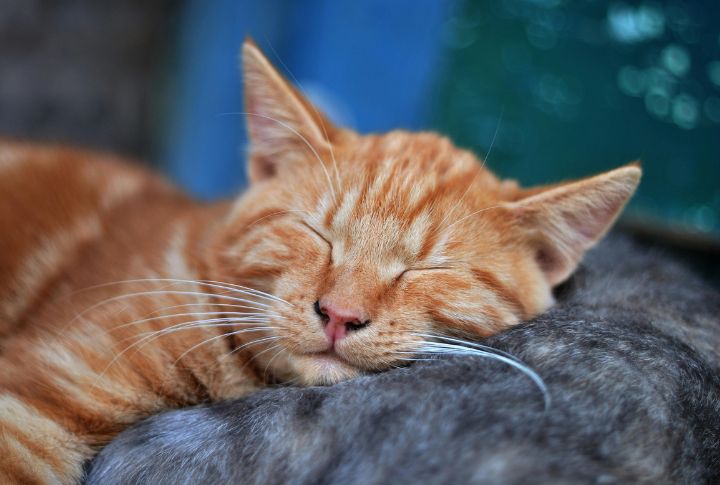
Sixteen hours a day is average. Eighteen isn’t rare. Indoor cats don’t have to hunt, dodge dogs, or climb trees. So they nap, and nap, and nap. Then, zoom around at 3 a.m. because they’re well-rested. But don’t mistake it for laziness; this is hardwired crepuscular behavior. You just happen to be their favorite daytime pillow.
They Know When You’re Packing A Suitcase
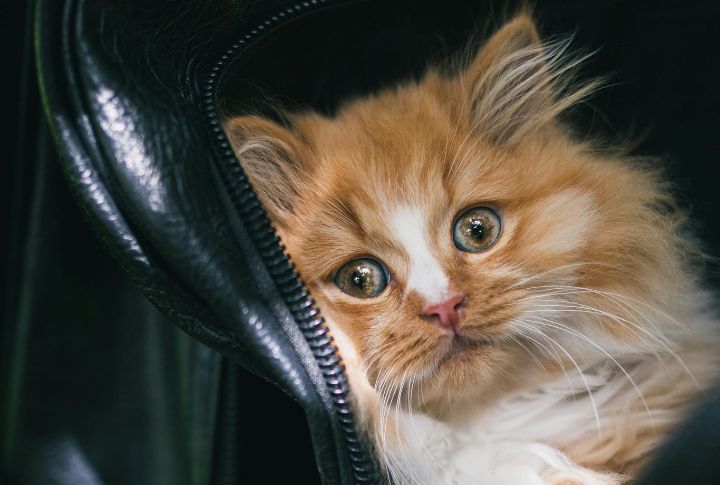
Before you’ve even zipped your bag, your cat has already started protesting—silently but stubbornly. Sitting on your folded clothes, refusing to move, and giving you “The Look.” Indoor cats are highly attuned to routine and don’t understand “vacation.” All they know is that their stable environment is changing, and they’re not happy about it.
They May Fixate On Certain Windows Like It’s Church
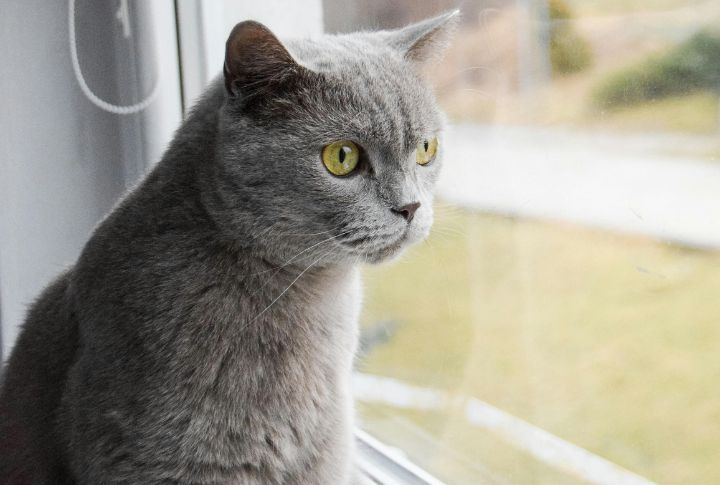
Some cats pick one window and treat it like sacred ground. They’ll sit there for hours, blank-faced, not even reacting to passing birds. It looks existential, and it might be. These “window shrines” are significant emotional territory for indoor cats. Don’t block them. Don’t move the chair. Just let them vibe.
Litter Box Politics Are Very Real
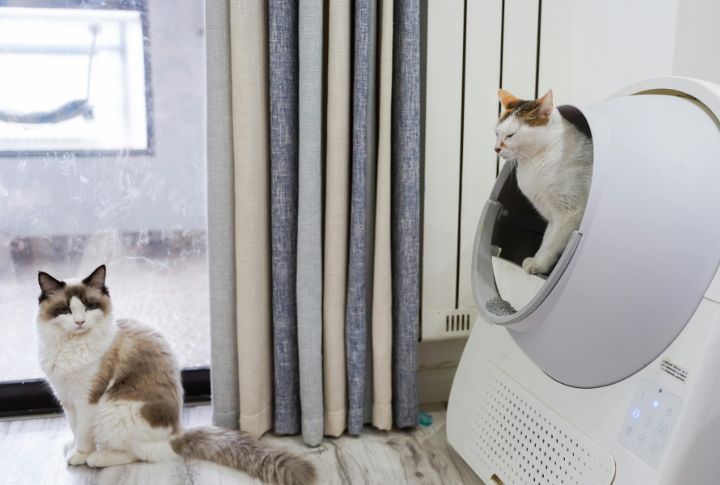
Cats that are solely homebodies are fussy about bathroom conditions. They’ll boycott it entirely if it’s too dirty, scented, or too close to a noisy appliance. And they won’t tell you why. It’s trial and error. Once you crack the code, never break it. Litter box drama is a war of attrition, and they have nothing but time.
They Recognize Your Emotions More Than You Think
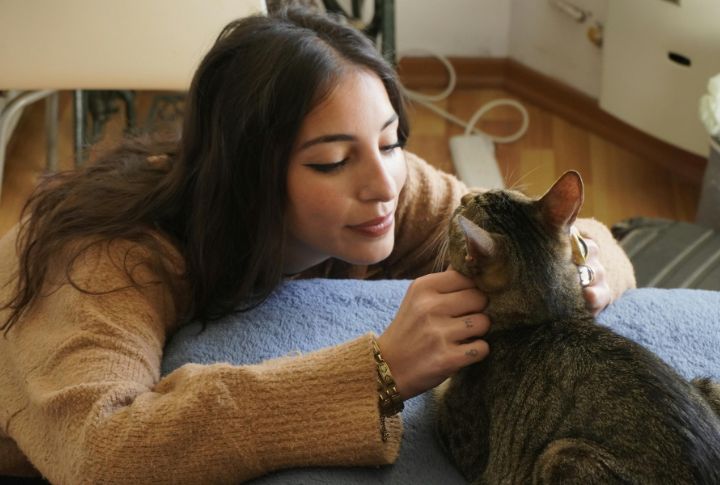
If you’re crying on the couch and your cat climbs onto your chest or sits nearby without demanding anything, that’s not a coincidence. Indoor cats learn your emotional language by proximity. They don’t comfort like dogs but observe, anchor, and let you sit in your feelings without judgment. It’s subtle and deeply grounding.
They Are Simultaneously Independent And Crushingly Needy
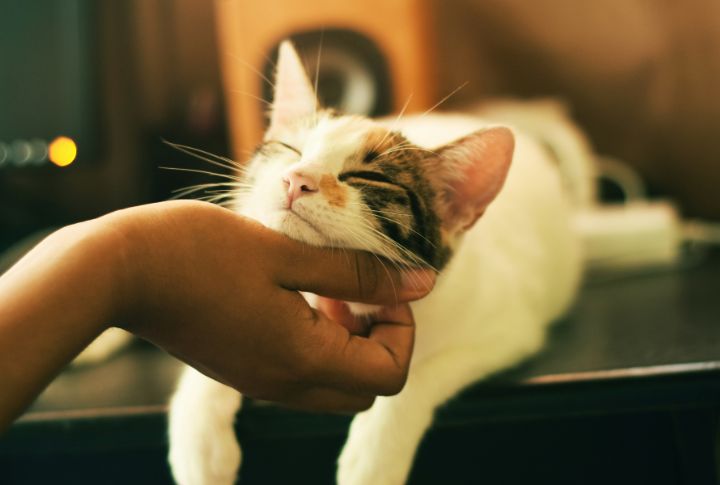
People say it over and over, “Cats are low maintenance.” But no, they’re just differently demanding. Your indoor cat might nap all day, but they still expect social interaction, play, grooming, and routine. If they’re clingy one moment and ignoring you the next, that’s just the paradox. You’re not doing it wrong. You’re doing it right.

